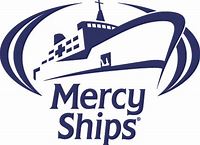Sierra Leone’s Ambassador Stevens brings message of hope, rebuilding
For a decade, civil war ripped the West African country of Sierra Leone apart, ravaging the people and infrastructure of the country. (Photo by Christopher R. Vinn, Tyler Paper): Bockari Stevens, Sierra Leone ambassador to the United States, answers questions at Mercy Ships International headquarters in Garden Valley Thursday)
More than 10 years later, the country’s reconstruction is slow going, but that’s a process some of the people gathered Thursday morning in Garden Valley hope to facilitate.
The Sierra Leone-U.S. Ambassador addressed representatives from almost 20 nongovernment organizations and major medical companies at the 400-acre Mercy Ships campus tucked into the pine trees off Texas Highway 110 North in Van Zandt County.
“Although we are making some progress with implementation of the national health care strategic plan, it is an uphill task,” Ambassador Bockari Stevens said. “We still need lots of medical assistance in many areas.
Representatives from Bristol-Meyers Squibb biomedical pharmaceutical company, the Catholic Medical Mission Board, Alcon Laboratories and Project Hope were among those who received Stevens’ message.
The companies and NGOs make up the board of the Partnership for Quality Medical Donations, which is “committed to raising medical donation standards, promoting effective donation practices and informing policy makers and the general public,” according to a prepared statement issued by Mercy Ships before the meeting.
Through a fleet of large ships equipped with surgical and training facilities, Mercy Ships takes high quality health care and infrastructure development services to developing countries.
The partnership between Mercy Ships, organizations, such as the donations partnership, and private companies is essential in achieving not only Mercy Ships’ vision, but often that of the countries it helps, founder Don Stephens said after the meeting.
It’s an idea volunteers such as ophthalmologist Dr. Glenn Strauss can get behind whole heartedly.
“It’s an important reality and it’s not one that’s in conflict with meeting that humanitarian need,” Strauss said. “It’s such a critical part of this whole story to have the support” of private companies.
Strauss, who has worked extensively in Africa training ophthalmologists and doing surgeries, spoke about the challenges in closing the gap between the medical industry in developed countries and the need for that same industry in places such as Sierra Leone, which are struggling to help their citizens.
Stephens said that through speakers such as the ambassador, the organization can bring those challenges to private companies in a powerful first-hand way.
“He brings that authenticity,” Stephens said.
In hearing about the struggles first hand, Stephens said, a relationship begins to form that can shape the future of a developing nation.
The companies “are looking for trustworthy partners. With Mercy Ships they found a partner,” he said. “Partnership is the answer for the next 50 years of development.”
As the country shakes off the damage of the civil war and grows into a productive, stable nation, the ambassador said it is his hope that Sierra Leone can pass on what they’ve gained to neighboring countries such as Liberia, where the needs are dire.
“I hope this can be seen as an example for other nations to follow, other states to follow,” Stevens said. “We are all each other’s keepers.”
And that, said the Mercy Ships founder, was the idea when he started the nonprofit 35 years ago.
That’s a message, he said, that stretches from national borders to corporate offices and the floating surgical bays of the medical ships.
“No one can do it alone,” he said.
For more information on Mercy Ships, with U.S. operations based in Garden Valley, visit mercyships.org.
By Tim Monzingo, Staff Writer, TylerPaper, Texas, USA
Stay with Sierra Express Media, for your trusted place in news!
© 2012, https:. All rights reserved.



